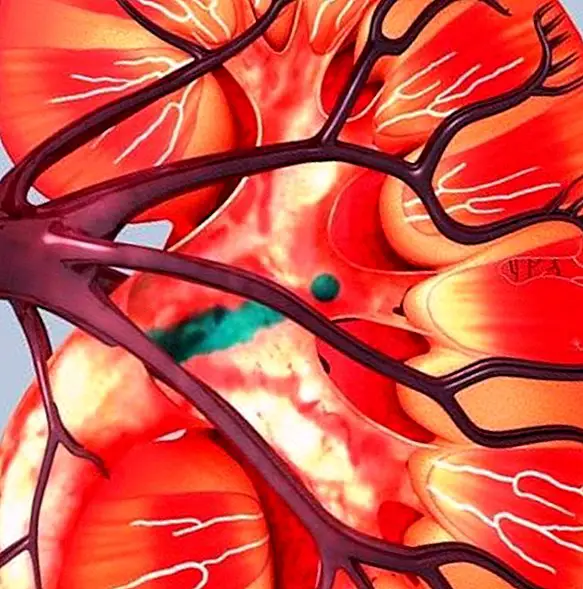Warning symptoms of peritonitis caused by appendicitis
The appendicitis it is, almost in all probability, one of the most common causes of emergency surgery performed in hospitals practically all over the world. Although usually it does not usually revert gravity, it is one of the most worrisome conditions for many people, especially due to the repercussions for life that could be caused by the fact that it is not diagnosed -and treated- in time.
The reason that leads to the concern of both doctors and especially patients comes from does not always have clear symptoms or signs, so that sometimes it tends to be confused with other alterations (such as digestive or even gynecological disorders) that delay the diagnosis, which in fact must be done as quickly as possible. 
Moreover, the problem that from a medical point of view causes appendicitis is not the inflammation of the appendix itself, but the picture evolves to such an extent that it causes a peritonitis, which does pose a great risk to the life of the person who suffers.
That is, when the appendix ends up becoming necrotic and tends to rot inside the abdomen, it can even affect the rest of the organs of the digestive system.
As its name suggests, basically the appendicitis consists of the inflammation of the appendix. The appendix We found it at the beginning of the large intestine, specifically in the lower right part of the abdomen. It has a characteristic shape reminiscent of the appearance of a worm, and its color is usually pink when it is not inflamed.
Inside we find many lymphoid follicles belonging to the immune system, and although many specialists agree that it does not have a function in itself in our body, the fact is that researchers from the Duke University Medical Center discovered a few years ago that it does have a basic function: harbor bacteriawhich make up the intestinal flora, making it possible for certain microbes to grow and thus control and stimulate the action of our flora.
What is peritonitis?
The peritoneum consists of a membrane composed of two layers (one external and one internal) that surrounds most of the organs that are located in our abdomen. It is very thin and solid, and covers the external surface of all organs located in the abdominal cavity: pancreas, liver, stomach, spleen, colon, small intestine ... 
Its main function is to protect the organs of the abdomen against any type of infection, while on the other it allows them to slide through the abdominal cavity.
So, peritonitis consists of inflammation of the peritoneum. Not only can it be caused by inflammation of the appendix and its subsequent infection (although it is actually one of the most common and common causes), but by trauma, other infections, or the presence of chemical irritants (such as bile or juices) pancreatic and intestinal).
What are the symptoms and signs of peritonitis?
Abdominal pain
It is the most common, common and obvious. It is usually a type of intense pain, which starts abruptly. The location where this pain appears depends directly on the cause that caused the inflammation, so that when the infection progresses the pain usually affects the entire abdomen, becoming generalized. 
However, in the case of peritonitis caused by appendicitis, it is common for there is intense malaise, Accompanied by Intense painthat is minimally relieved when the person remains lying down, avoiding certain movements.
In fact, it is common for pain to tend to move to the lower right part of the abdomen and concentrate at a point on the appendix, worsening when walking, making rapid movements or coughing.
It is also common the appearance of stiffness of the wall of the abdomen. That is, the abdomen feels and feels particularly hard, and when a decompression maneuver is performed, intense pain appears.
Fever
Since the process caused by appendicitis tends to be more abrupt and rapid (in 24-36 hours the picture may progress to peritonitis), it is common for the high temperature exceeds 38ºC. 
In any case, when appendicitis does not occur to peritonitis, the usual thing is that in the first hours of evolution high fever does not appear, being between 37.5ºC and 38ºC.
Dizziness and vomiting
After the onset of abdominal pain tends to arise malaise, dizziness and vomiting. These symptoms are joined by loss of appetite, thus becoming what is medically known as the "classic triad of appendicitis symptoms": abdominal pain, vomiting and loss of appetite.This article is published for informational purposes only. It can not and should not replace the consultation with a Physician. We advise you to consult your Trusted Doctor. ThemesGastrointestinal disorders


